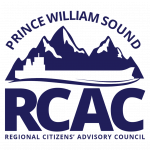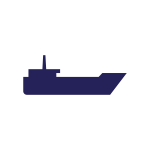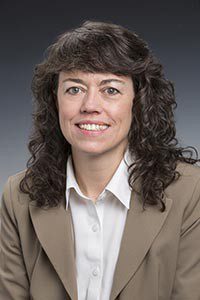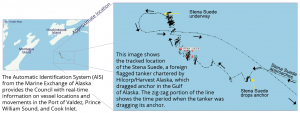 The Council held virtual board meeting on Thursday and Friday, September 16-17, 2021.
The Council held virtual board meeting on Thursday and Friday, September 16-17, 2021.
Final agenda and meeting materials
On the agenda
The Council conducted regular business during the meeting, including updates from the Council’s ex-officio members, staff, and committees. Other topics on the agenda were:
- An activity report by Alyeska Pipeline Service Company on the Valdez Marine Terminal and Ship Escort/Response Vessel System operations.
- An update on the Alaska Department of Environmental Conservation’s review of regulations related to oil spill contingency planning and current challenges facing the department’s Division of Spill Prevention and Response.
- An overview of onboard ballast water treatment systems by representatives of ConocoPhillips and Polar Tankers.
- A presentation on the results of field trials to evaluate the effectiveness of messenger line throwing devices used to deploy towing lines between response tugs and vessels in distress.
- An overview of the Council’s updated Alaska Oil Spill Lesson Bank – educational resources for K-12 students.
- A presentation on marine bird surveys conducted in Prince William Sound in March of 2021.
- A report on data analyzed from the Council’s weather buoys in Port Valdez.
- A presentation on reports detailing the history of the Prince William Sound Tanker Oil Discharge Prevention and Contingency Plan, documenting changes to the plan, regulatory positions and industry commitments.
- An overview of the updated dispersant research summary maintained by the Council, now current through 2021.
Board meetings are routinely recorded and may be disseminated to the public by the Council or by the news media.
News release
Prince William Sound RCAC board meeting will be virtual, September 16-17 (PDF)
 Anyone who moves or stores crude oil in Alaska must have an approved spill contingency plan. These plans describe in detail how they plan to:
Anyone who moves or stores crude oil in Alaska must have an approved spill contingency plan. These plans describe in detail how they plan to:
 Spill from a tanker
Spill from a tanker
